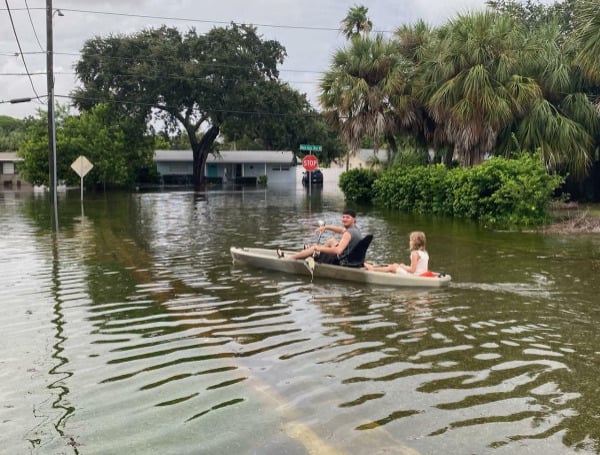
The rising insurance rates in Florida due to an increase in extreme weather events have become a pressing concern for coastal residents.
As hurricanes and other natural disasters become more frequent and severe, insurance companies are raising their rates, making it increasingly difficult for residents to afford coverage.
This has led to a growing number of people considering moving out of coastal areas in search of more affordable options.
Read: Insurers OK’d To Take 125,000 Policies From Florida-Backed Citizens
The Growing Affordability Crisis
Escalating Insurance Costs
One of the main factors contributing to the affordability crisis is the sharp increase in insurance costs. Residents have reported significant hikes in their premiums, making it increasingly challenging to keep up with payments.
Jennifer Jurado, the chief resilience officer for Broward County, Florida, highlighted the situation at a Senate hearing Wednesday, stating, “There is a lot of conversation of people needing to move out of the area because they can’t afford their insurance options that allow them to afford their mortgage payment that allow them to stay in their homes.”
Michael Wehner, a senior scientist at the Lawrence Berkeley National Laboratory, shared a similar experience, revealing that his insurance rates more than doubled from $2,000 to $5,000.
Read: Florida Law Enforcement Recruitment Program Draws New Law Enforcement Officers From All 50 States
Limited Options and Bankruptcies
In states like Florida, insurance companies are struggling to cope with the increasing number of claims resulting from extreme weather events. Some insurance companies have even gone bankrupt, further limiting the options available to residents.
As a result, many homeowners have been forced to turn to state-backed insurance programs, which may offer coverage but at a higher cost.
Jurado emphasized the severity of the situation, stating, “The options are significantly reduced. The costs are escalating beyond a level of affordability, and I think it’s one of the most treacherous conditions affecting homeownership.”
Vulnerability of the Very Poor
Lower-income Americans are particularly vulnerable to the threats posed by climate change and extreme weather events. Wehner explained, “The very poor are indeed the most vulnerable because they are the least able to recover from these kinds of events.”
With limited financial resources, these individuals struggle to bounce back after their homes are damaged or destroyed by hurricanes or floods.
The rising insurance rates only exacerbate their financial hardships, leaving them unable to cover other essential costs, such as utilities.
Struggling to Meet Basic Needs
For many residents, the increasing insurance rates have resulted in a daily struggle to meet basic needs. Jurado highlighted the difficulties faced by homeowners, saying, “Many are struggling with how to provide air conditioning just to sleep through the night.”
Extreme heat can be life-threatening, especially for vulnerable populations, such as the elderly and those with pre-existing health conditions.
The lack of affordable insurance options leaves residents with limited resources to ensure their safety during extreme weather events.
The rising insurance rates in Florida are posing a significant threat to coastal residents who are struggling to afford coverage.
The affordability crisis is forcing many homeowners to consider moving out of coastal areas, as insurance costs become increasingly unaffordable.
Android Users, Click To Download The Free Press App And Never Miss A Story. Follow Us On Facebook and Twitter. Signup for our free newsletter.
We can’t do this without your help; visit our GiveSendGo page and donate any dollar amount; every penny helps
